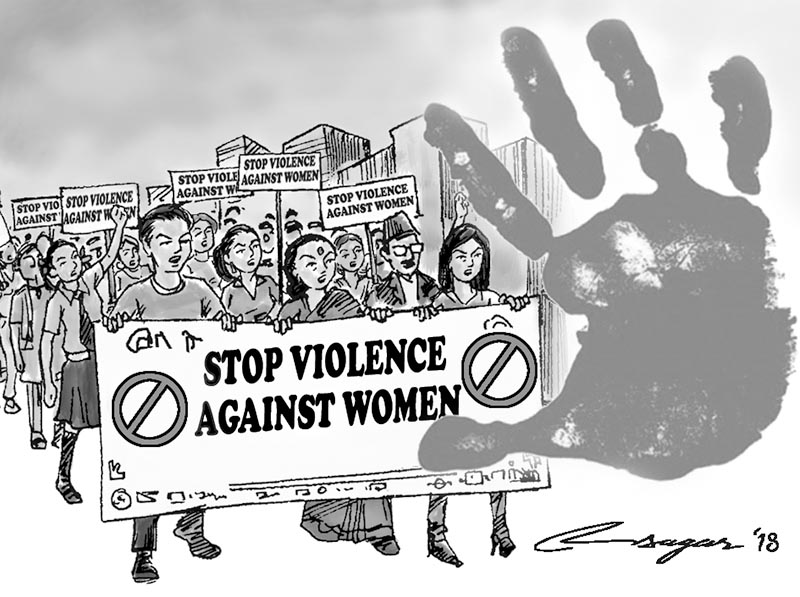Act now to address shadow pandemic of VAW, says WHO
KATHMANDU, NOVEMBER 25
Urgent action is needed across the WHO South-East Asia Region to strengthen efforts to protect women and girls from violence and to support their health needs amid the ongoing COVID-19 pandemic, said the World Health Organisation Regional Office for South-East Asia today.
On the International Day for Elimination of Violence against Women, which marks the beginning of the UN’s annual campaign — the 16 Days of Activism against Violence against Women — WHO called on all health sector stakeholders in the region to take a lead role in addressing this serious public health issue. Nepal is among 11 member states of WHO’s South-East Asia Region.
Globally, one in three women experience physical and/or sexual violence in her lifetime, mostly in the form of intimate partner violence. In the region, that figure is estimated to rise to two in five women, or around 40 per cent.
Violence against women has serious health impacts, encompassing injuries, as well as physical, mental, sexual and reproductive health problems, including sexually transmitted infections, HIV and unplanned pregnancies, and mental health problems.
“The emergence and spread of COVID-19 has made women and girls especially vulnerable to increased violence and abuse. Limitations on movement can keep women isolated from support services and friends and in close proximity with their perpetrators, often in situations of increased economic and psychological stress. Women have been disproportionately affected by loss of livelihoods, increasing their economic vulnerability and dependence,” read a press release issued by Dr Poonam Khetrapal Singh, WHO regional director for South-East Asia.
According to her, the risk to women and girls comes at a time when social protection services to respond to violence such as hotlines, shelters and legal aid have in many areas been disrupted. It is imperative that these and other support services are not only revived and maintained, but also expanded. WHO commends member states for introducing new or upscaled gender-sensitive measures during COVID-19 response.
“First, policy-makers must continue to ensure that services for survivors are adequately resourced and included in their package of essential health services, the maintenance of which the region continues to prioritise. Second, health facility administrators must take concerted action to identify and stay up to date on information about locally available services for survivors, including opening hours, contact details and whether these can be offered remotely, and establish referral links. Third, trusted community members must continue to increase awareness and stay in touch with survivors in safe ways, while discreetly offering information and support,” Dr Khetrapal Singh said.






